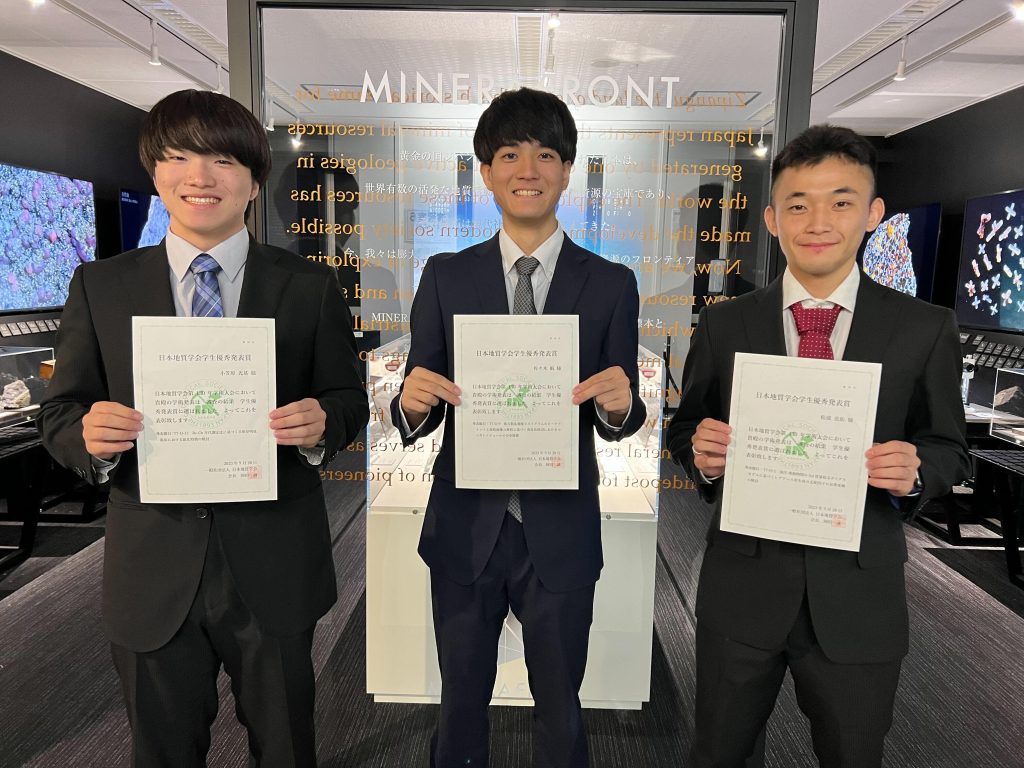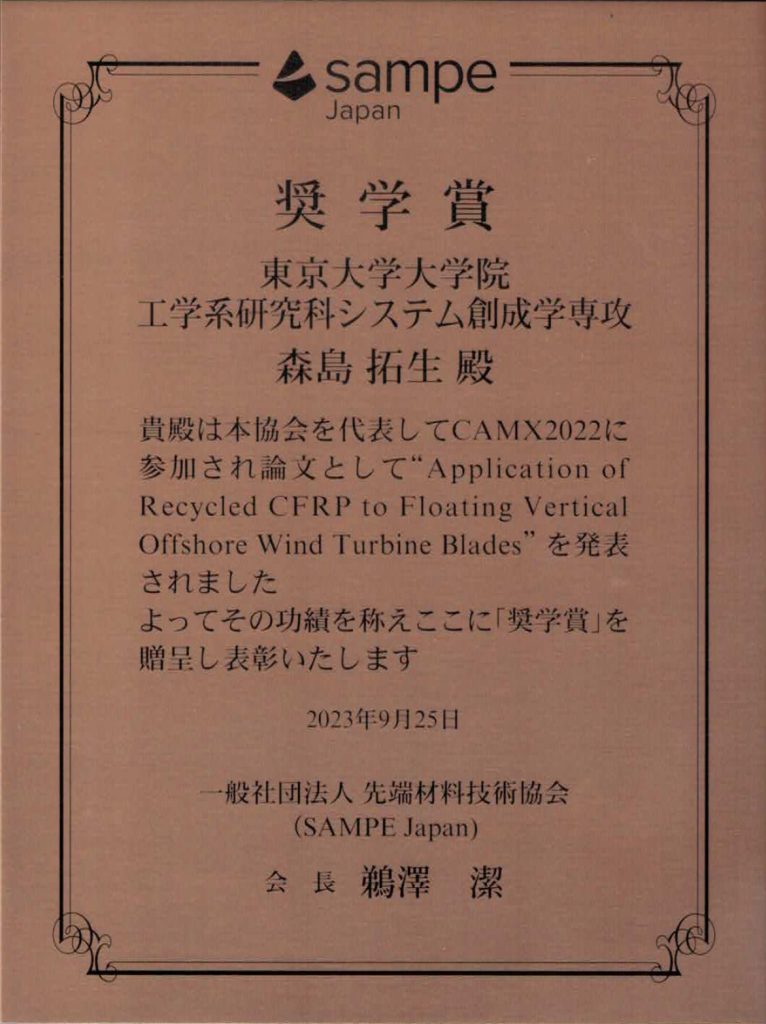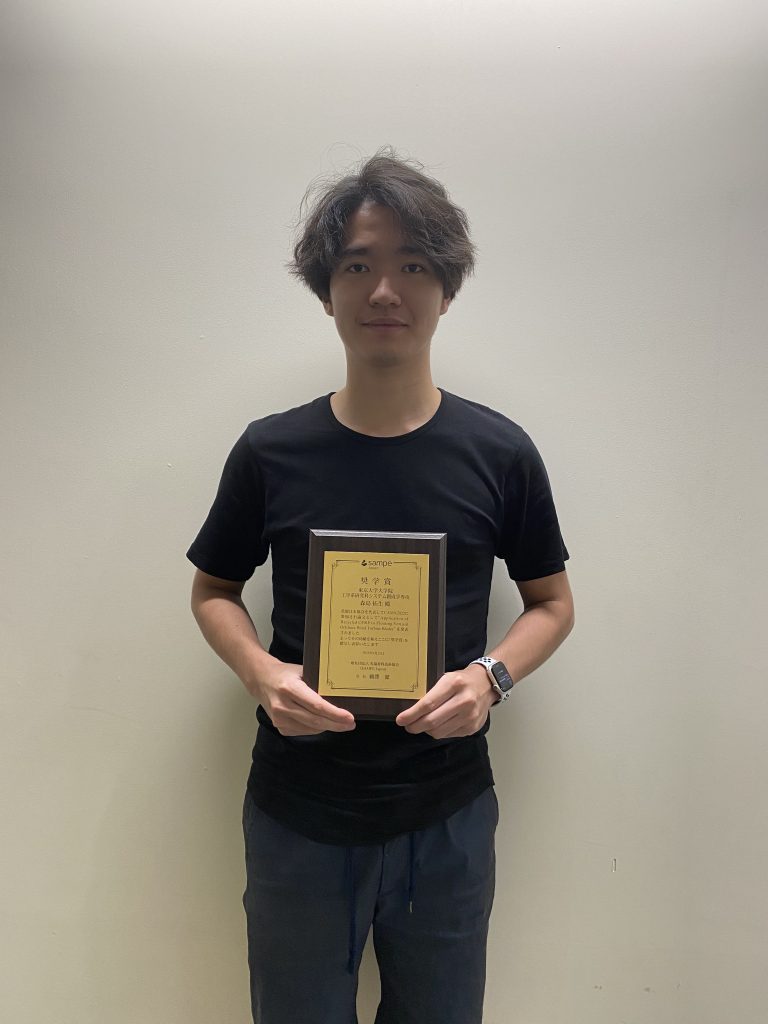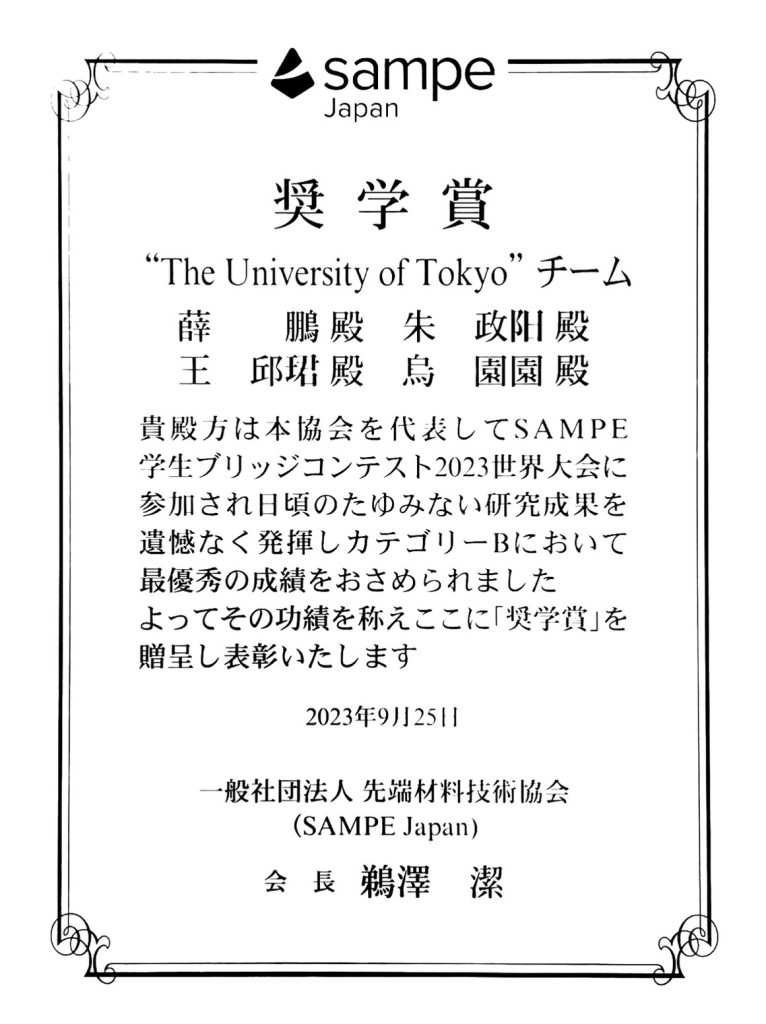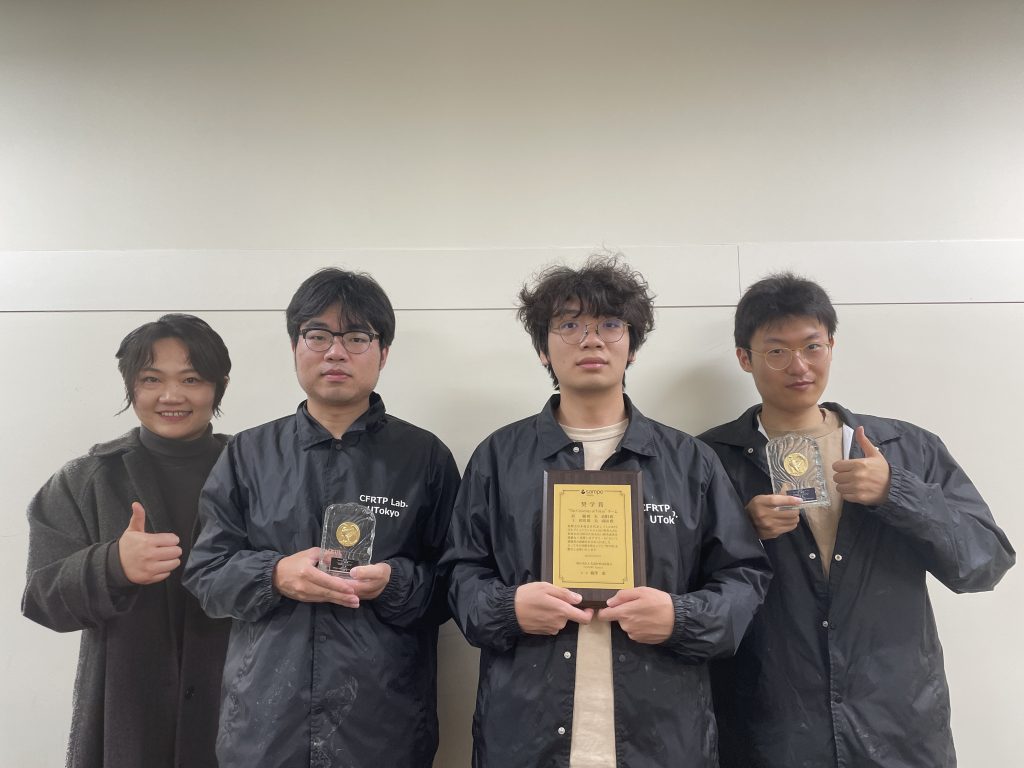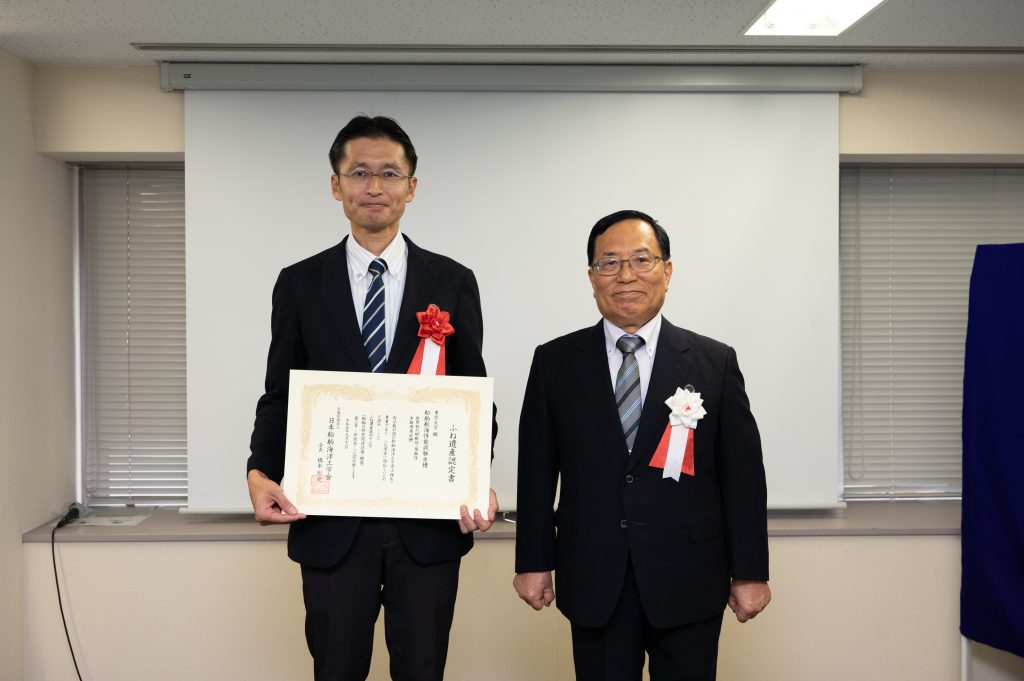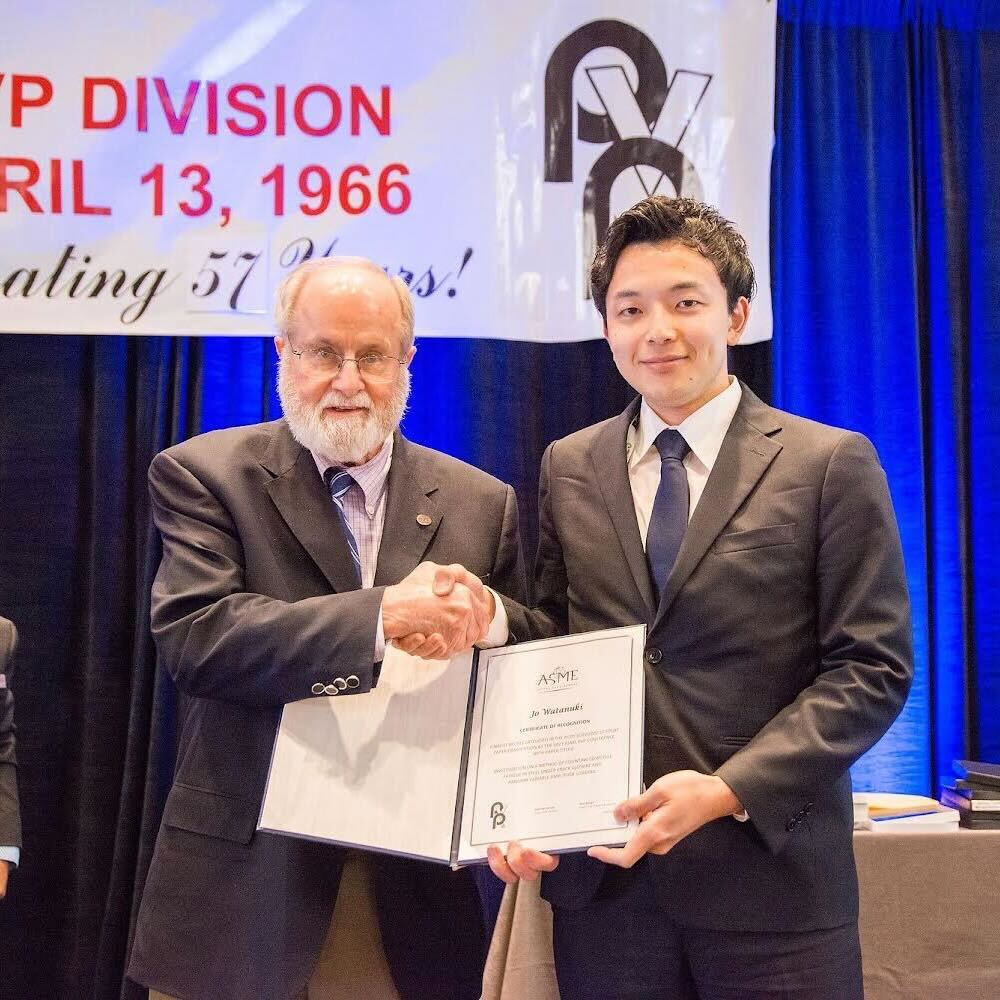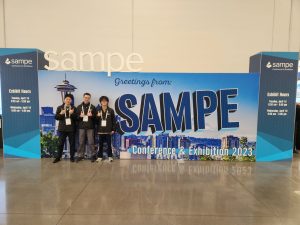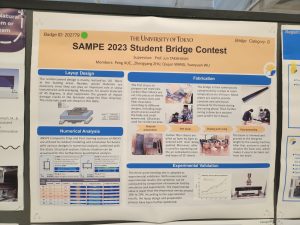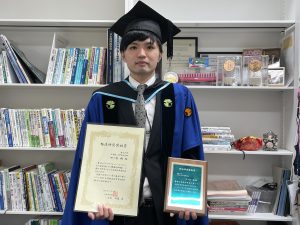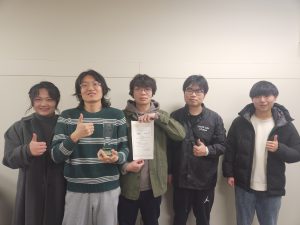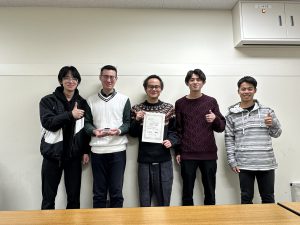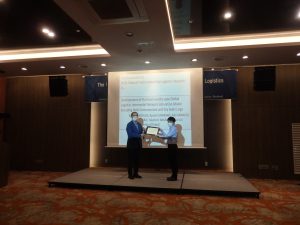- Name, Faculty/Graduate School, Department (Stream / Program) / Major: Mitsuki Ogasawara (Department of Systems Innovation, School of Engineering, M2), Wataru Sasaki (Department of Systems Innovation, School of Engineering, M1), Ryosuke Matsunami (Department of Systems Innovation, School of Engineering, M1)
- Name of the award and a short explanation about the award: Student Outstanding Presentation Award at The 130th Annual Meeting of the Geological Society of Japan
- About awarded research:
Mitsuki Ogasawara
Title : Study on the mineralization age of the Akenobe deposit in Hyogo prefecture, on the basis of Re-Os geochronology
Outline : The discovery of new mineral deposits is of global importance in order to secure the supply of various metals needed to realize a sustainable society. The formation of ore deposits is closely related to underground magmatic activity, but the details of this process are not yet clear. If the formation process of a superior ore deposit is clarified, it is expected to lead to the discovery of new promising ore deposits based on similar geological conditions as a clue. In this study, the formation age of the Akenobe deposit in Hyogo Prefecture was determined with high precision using the Re-Os radiometric dating method in order to clarify the causal relationship between magmatic activity and the formation of the deposit. As a result, the formation age of the Akenobe deposit was found to be about 10 million years older than previously estimated, suggesting a close genetic relationship with the surrounding granitic magma.
Wataru Sasaki
Title : The distribution mode of ferromanganese nodules around Minamitorishima Island based on peak-fitting of the acoustic backscatter intensity histograms and analysis of seafloor images
Outline : Manganese nodules contain high concentrations of cobalt and nickel, which are important materials for rechargeable batteries, and are attracting attention as a new rare metal resource. In 2016-17, research cruises for the manganese nodule distribution survey were conducted around Minamitorishima Island, and a backscatter intensity of the seafloor surface obtained by a multinarrow-beam acoustic sounder combined with ground-truthing by “Shinkai 6500” was revealed to be effective for seafloor Fe-Mn deposits survey. In a previous study, Machida et al. (2021) analyzed the backscatter intensity data and identified an intensity threshold indicating a dense area of manganese nodules. However, the relationship between the distinct multiple peaks seen in the histogram of the data and the characteristics of the seafloor surface remained unresolved. In this study, we performed peak-fitting analysis to explore the relationship between these peaks and the characteristics of the seafloor surface. In addition, we also analyzed seafloor images obtained by the Shinkai 6500 to investigate the relationship between each peak and manganese nodule distribution. This study clarified how the acoustic reflections from the seafloor surface correspond to the distribution of manganese nodules.
Ryosuke Matsunami
Title : Long-term variation of factors controlling REE-rich mud formation based on a box-model simulation of ocean-sediment Nd mass balance
Outline : For the selection of promising areas for rare-earth elements (REE)-rich mud, which is expected to be developed as a new resource, it is critical to understand the ore genesis. In this study, we developed a new theoretical model for neodymium (Nd), which is industrially important as a raw material for powerful magnets essential for motors and generators, and a representative element of REE. The model quantifies the mass balance of Nd between ocean and deep-sea sediments. Through sensitivity analyses and long-term simulations, the dominant factors of REE-rich mud formation and their long-term variations in the entire Pacific Ocean were quantitatively investigated. The results show that sedimentation rates and the discharge of REE from the continental margin to the ocean have a significant impact on the grade of REE-rich mud. We also demonstrated that variations in dust fluxes can generally reproduce the trends in grades of REE-rich mud in actual pelagic sediment core samples.
- Your impression & future plan:
Mitsuki Ogasawara
In receiving this award, I would like to express my deepest gratitude to Prof. Kato and the laboratory members, the people of Yabu City in Hyogo Prefecture who cooperated with my research, the colleagues of Chiba Institute of Technology who helped my analysis, and the Hattori International Scholarship Foundation, which has been providing constant support to me. While I am proud to receive such a prestigious award, I am not satisfied with the current state of my research, and I would like to continue to pursue my research. There are still many things to be clarified in my master’s research, and I will continue to work hard to elucidate them to the best of my ability.
Wataru Sasaki
I would like to express my deepest gratitude to Dr. Yasukawa, Prof. Nakamura, Prof. Kato of Department of Systems Innovation, Dr. Machida of Chiba Institute of Technology, and others who supported me in receiving this award. I am very proud to receive such a prestigious award in recognition of my master’s research. This research has shown the possibility to estimate the distribution and abundance of seafloor manganese nodules in more detail and more efficiently than ever before by acoustic exploration from a ship. In the future, we plan to apply machine learning to analyze images more precisely, to examine the reasons for the correspondence, and to study the possibility of applying this method to other ocean areas. I am grateful to have received this award and intend to work even harder on my research.
Ryosuke Matsunami
I would like to express my deepest gratitude to Dr. Yasukawa and all those who have supported me in receiving this award. I am very proud to receive such a prestigious award in recognition of my research achievements. Encouraged by this award, I will continue to devote myself to my research activities.






